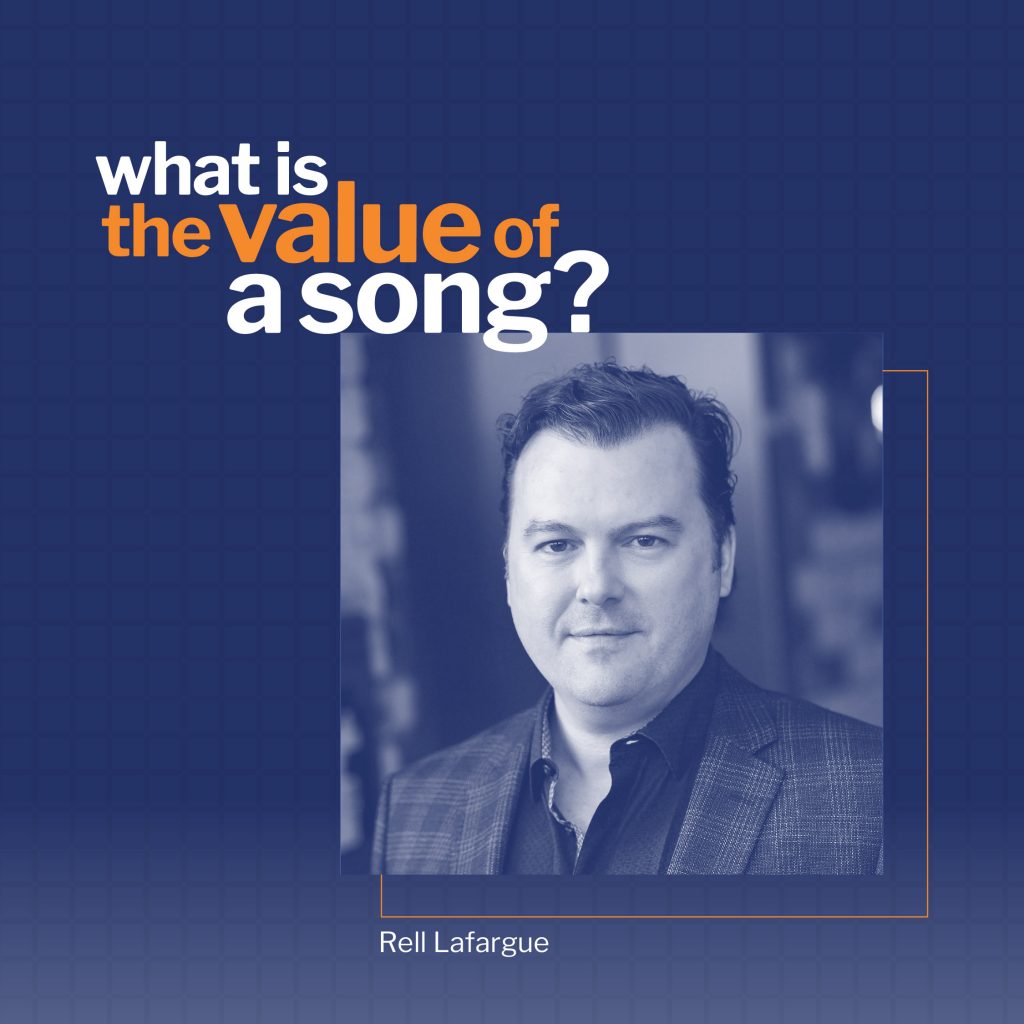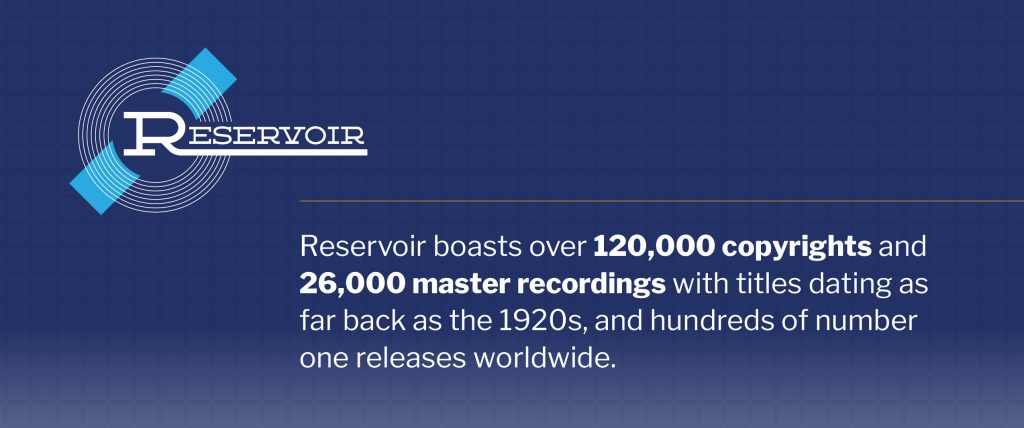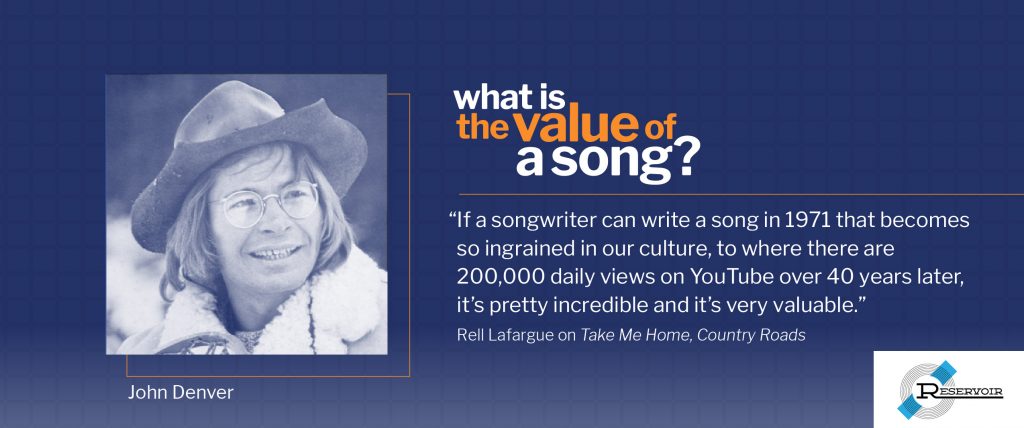By Isabelle Speerin

President and Chief Operating Officer of Reservoir, Rell Lafargue, has come a long way from his days in the orchestra pit. Lafargue hails from Louisiana, where music enjoys a rich history and is deeply woven into the fabric of society, from sidewalks to front porches to performance halls. “I come from a musical family,” Lafargue explains. “One of my early musical mentors was my uncle (Lance Lafargue) who is in the Louisiana Music Hall of Fame and he’s also one of the leading piano dealers in Louisiana.”
Like his uncle, Rell Lafargue learned classical piano from the age of six and went on to study music academically at the University of Louisiana and later at the University of Miami, where he graduated from the Frost School of Music with a Masters in Music Business & Entertainment Industries. While at university, he played music professionally as a classical orchestral timpanist. But, as much as he loved playing kettledrums, he soon came to realize life in the orchestra pit wasn’t for him. “I vividly remember playing with the Miami City Ballet doing the Nutcracker over 50 times one holiday season saying I don’t want to sit in an orchestra pit for the rest of my life.”
Lafargue began to branch out into production, programming, and songwriting. In 1996, he crossed over into his first music business role at Pandisc Music, an independent record label, publishing company, and recording studio in Miami. “My focus there was two things; business affairs and royalty systems,” he said. “I helped design the royalty system that became one of the standards over 200 record labels were using at that time.”
In 2000, Lafargue received a call from TVT Records, one of the most successful independent record labels in the U.S. at the time, asking for help to revamp their royalty system. “For a small independent, TVT punched above its weight,” he said. “It also had a reputation of not being the best at paying royalties, so I was hired to come in and change that.”
Lafargue was soon promoted to Vice President, where he assumed responsibility for the company’s music publishing arm, home to award-winning super-producers Scott Storch and Lil John, among others.

In 2008, Lafargue was approached by Reservoir’s Canadian founder and CEO, Golnar Khosrowshahi, to help establish the company’s infrastructure, administration and licencing systems, and build the international network that oversees its copyrights.The global financial crisis was in full swing.
“It was rock bottom for a lot of music companies at the time,” he said. “Record labels were folding left and right and it became an opportunity for us to acquire and grow.” Reservoir’s first acquisition with Lafargue at the helm was TVT Music Publishing. The company later acquired UK independent publisher Reverb Music, bringing more than 30,000 copyrights and around 30 active songwriters into the fold.
“The TVT acquisition was about a great catalogue, then we had a turnkey solution to bring the whole creative component into the publishing company with Reverb,” he said. “After that, we acquired FS Media which was about 26,000 copyrights.”
Today, Reservoir boasts over 120,000 copyrights and 26,000 master recordings with titles dating as far back as the 1920s, and hundreds of number one releases worldwide. The company employs over 50 people in Toronto, Los Angeles, Nashville, New York and London and will be expanding operations to Abu Dhabi in early 2020.
The company’s roster of active writers include James Fauntleroy, Ali Tamposi, Jamie Hartman, Sam Sumser, RuthAnne, and The Orphanage, plus popular performing artists 2 Chainz, Young Thug, A Boogie Wit Da Hoodie, and Migos’ Offset and Takeoff.
Late last year, Reservoir struck a deal to bring another UK music company, Blue Raincoat Music, and its subsidiary Chrysalis Records, into Reservoir’s portfolio. “Our strategy is to become a complete music company, rather than just a music publisher or music label,” Lafargue revealed. “I guess you could call it a convergence of rights and assets.”

When asked to speak to the value of a song, Lafargue points to John Denver’s Take Me Home, Country Roads, a song Reservoir licenses almost every day. “A great song starts as one recording by John Denver but then it just spreads and it’s streaming 200 million times a year,” he said. “There are 438 recordings of this song on Spotify. If a songwriter can write a song in 1971 that becomes so ingrained in our culture, to where there are 200,000 daily views on YouTube over 40 years later, it’s pretty incredible and it’s very valuable.”
Looking into the new year, Lafargue sees data integrity becoming increasingly important, especially in the lead-up to the launch of the Mechanical Licensing Collective (MLC) in the U.S. on January 1, 2021. “There’s a big unknown in the US music business of unallocated royalties, ” he said. “We need to get our data accurate, not just in our individual territories but throughout the world.”
According to Lafargue, awareness of copyright and publishing rights are stronger than ever before, thanks to recent policy changes in Europe and the Music Modernization Act (MMA) in the U.S. “The fact that our songwriters could potentially have more copyright protection in the U.S. than in Canada is not a good thing,” he said. “There’s an opportunity here for us to continue to use momentum in other territories and strengthen that in Canada to bring it up to where it is in the rest of the world.”
Rell Lafargue is based in New York and Toronto and sits on CMRRA’s Canadian Publishers Committee.
Thinking about becoming a client of CMRRA? Already a client but you have questions? Email us at [email protected] and we’ll get you the answers you need.


